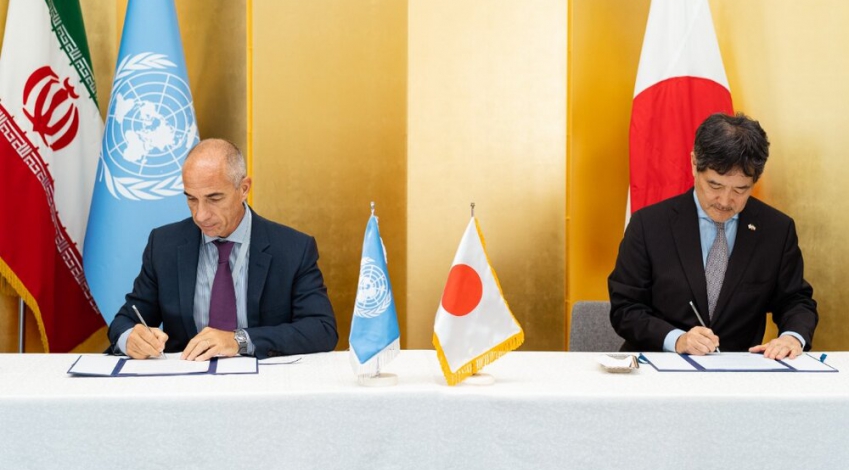Tuesday 6 September 2022 - 23:34
Story Code : 400051
Japan funds project to overcome water shortage in Chabahar
During recent years, challenges caused by prolonged and continuous droughts in Sistan-Baluchestan from water reduction in the north to severe decline of groundwater resources in the central and south, have affected the entire province, including in the Chabahar Area. Providing clean water supply infrastructure is a priority for the region and essential to the COVID-19 socio-economic recovery efforts.
The project will provide sustainable and clean water and energy solutions, including water-efficient agricultural management practices for sustainable livelihoods.�In a signing ceremony held on September 6 at the Embassy of Japan, Japanese Ambassador to Iran, Kazutoshi�Aikawa, and The United Nations Development Programme Resident Representative in Iran, Claudio Providas, signed a project document entitled �Strengthening the resilience of vulnerable local communities against water shortage thorough provision of desalination system and effective use of water in agriculture in Chabahar Area.�
The project will be implemented jointly and in close collaboration with the ministries of interior, agriculture, and Sistan- Baluchestan Governorship in the target area for a duration of three years.
The project will provide sustainable and clean water and energy solutions, including water-efficient agricultural management practices for sustainable livelihoods in target communities. Improved access to clean water and energy can reverse current migration trends in the province and can facilitate the creation of employment and self-employment opportunities.
�There are opportunities that can significantly impact the socio-economic development in Chabahar Area. This can be achieved through the development of renewable energies, the introduction of innovative water-efficient and climate-smart agricultural practices and technology as well as promotion of sustainable livelihoods,� said Claudio Providas.
He added: �Japan is a longstanding partner of UNDP in Iran, and we are grateful to the People and Government of Japan for this generous contribution.�
�In the field of sustainable agricultural practices and biodiversity conservation, Japan has been continuously supporting UNDP�s project via local community participation since 2014 and I do believe that the knowledge and experiences gathered through all these years will be useful for the successful implementation of this new project,� the Japanese envoy said.
UNDP is committed to supporting the Government of Iran in the implementation of projects aimed at building resilience and betterment of local communities� livelihoods based on sustainable solutions in the areas of agriculture, water resources management, and renewable energies.
By TEHRAN TIMES
# Tags











